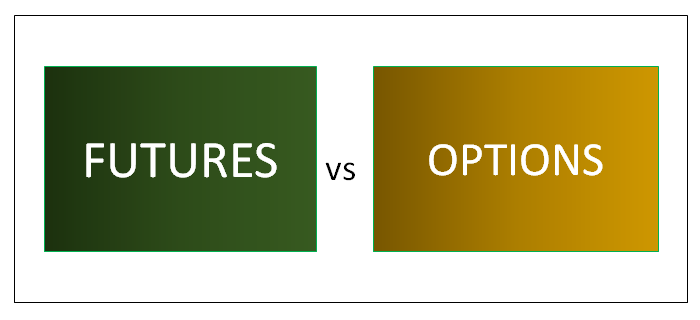An options trader has to pay attention to time decay because it can severely erode the profitability of an option position or turn a winning position.
Table of contents
- Futures Contracts vs. Options—Which Are Better?
- Benefits of Options Contract
- Member Sign In
- Understanding Futures vs. Options
Since futures involves the presence of an exchange, the execution of the contract is likely, whereas options do not have such an option, but on the payment of a premium amount, one can lock in the contract and depend on where the direction of prices are towards the end of the duration, the contract can either be executed or allow expiring worthless.
Futures Contracts vs. Options—Which Are Better?
This has been a guide to Futures vs. Here we discuss the differences and similarities between the two with infographics and a comparison table. You may also have a look at the following articles to learn more —. Free Investment Banking Course.
Benefits of Options Contract
Login details for this Free course will be emailed to you. This website or its third-party tools use cookies, which are necessary to its functioning and required to achieve the purposes illustrated in the cookie policy. By closing this banner, scrolling this page, clicking a link or continuing to browse otherwise, you agree to our Privacy Policy.
- What are futures?;
- Five Advantages of Futures Over Options.
- trader forex tunisie.
- What is the difference between futures vs options?.
- Options vs Futures: Which Should You Trade? - Echelon 1.
- Main Takeaways: Futures vs. Options.
Forgot Password? Differences Between Futures and Options In this article, we will discuss the importance of futures and options and the role they play in the functioning of the derivatives market. The contracts categorized under derivatives are: Forwards Contract Futures Contract Options Swaps Futures contracts are agreements for trading an underlying asset on a future date at a predetermined price. Popular Course in this category.

View Course. Email ID. Contact No. Please select the batch. Agreement binding the counterparties to buy and sell a financial instrument at a predetermined price and a specific date in the future. A contract is allowing the investors the right to buy or sell an instrument at a pre-decided price. Investment in securities market are subject to market risks, read all the related documents carefully before investing.
Brokerage will not exceed the SEBI prescribed limit. For more information, visit our disclosure page.
Member Sign In
Home » p » Futures and Options. Futures and options are the major types of stock derivatives traded in a share market. These are contracts signed by two parties for trading a stock asset at a predetermined price on a later date.
Such contracts try to hedge market risks involved in stock market trading by locking in the price beforehand. Future and options in the share market are contracts which derive their price from an underlying asset known as underlying , such as shares, stock market indices, commodities , ETFs , and more. Futures and options basics provide individuals to reduce future risk with their investment through pre-determined prices.
- forex reserve of bangladesh.
- Futures and Options.
- what time does the forex market opens.
- Options Vs Futures Differences.
- fnb forex brooklyn.
- Options vs. Stocks: Which Is Right for You? - NerdWallet?
However, since a direction of price movements cannot be predicted, it can cause substantial profits or losses if a market prediction is inaccurate. Typically, individuals well versed with the operations of a stock market primarily participate in such trades. Future and option trading are different in terms of obligations imposed on individuals.
While futures contract holds the same rules for both buyers and sellers of a contract, an options derivative can be divided into two types. Individuals entering an options contract to sell a particular asset at a pre-asserted price on a future date can do so by signing a put option contract. Similarly, individuals aiming to purchase a particular asset in the future can enter into a call option to lock in the price for future exchange.
Traders engaging in future and option trading can be classified into the following types. Such individuals enter into futures and options contracts in the share market to reduce investment volatility concerning price changes. Locking in a price for transaction at a future date helps individuals realise relative gains if the price moves adversely with respect to a trading position assumed by a buyer. However, in case of a favourable fluctuation, individuals entering into a futures contract can incur significant losses. Such risk is mitigated in an options contract, as an investor can pull out of a deal in case of favourable price swings.
Hedgers aim to secure their gains or expenditures in the future by entering into a derivative contract. Such traders are popular in the commodity market, wherein individuals try to secure an expected price of a particular item for a successful exchange.
Understanding Futures vs. Options
Understand it with the help of a future and option trading example. A farmer can enter into a futures contract with a wholesaler to sell 50 kg of potato for Rs. On the day of maturity, if the price of potatoes falls below that level, the farmer successfully hedged his position to minimise the overall risk associated with trading in the future. However, in case of a price rise in the potato market, a farmer stands to lose out on profits.